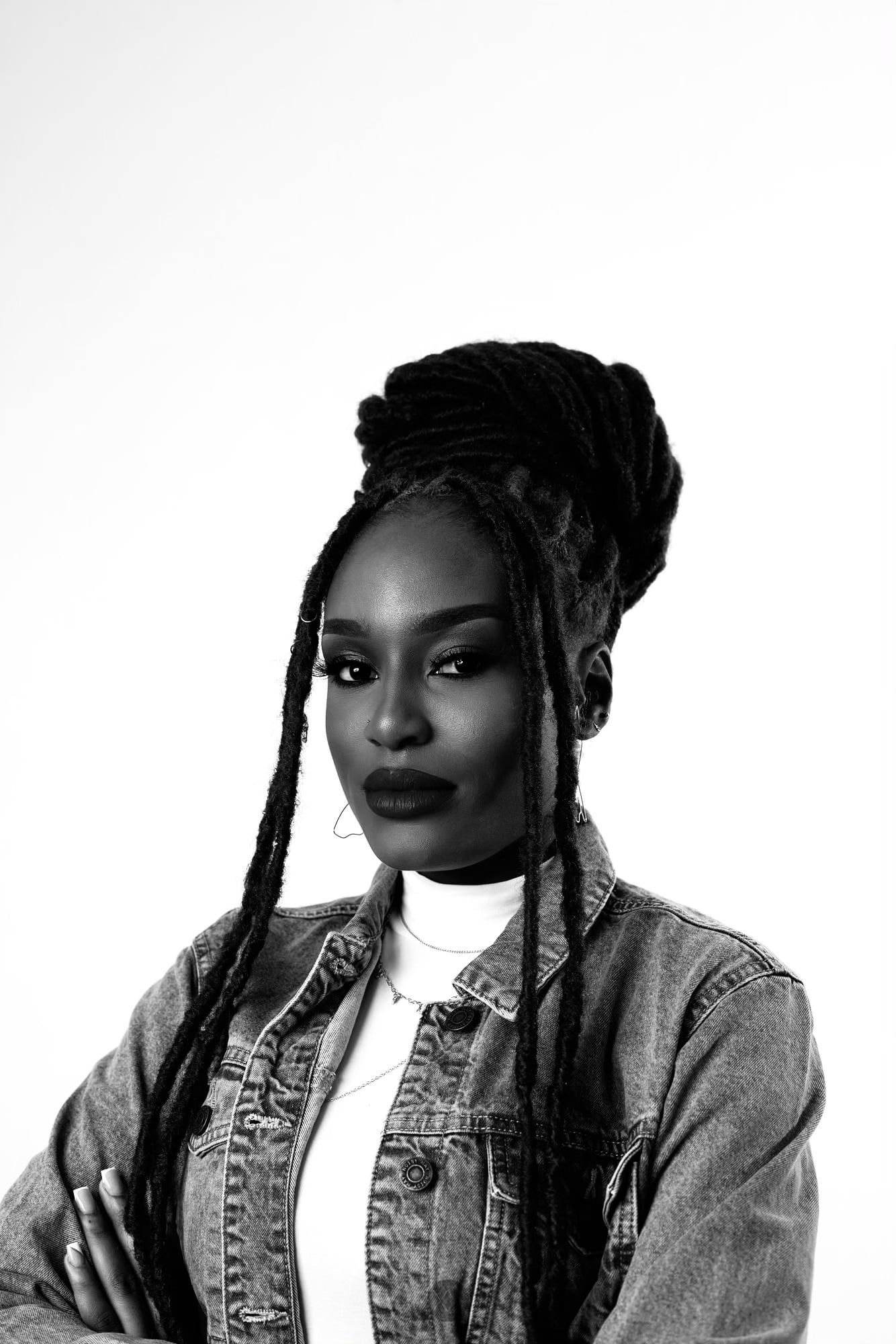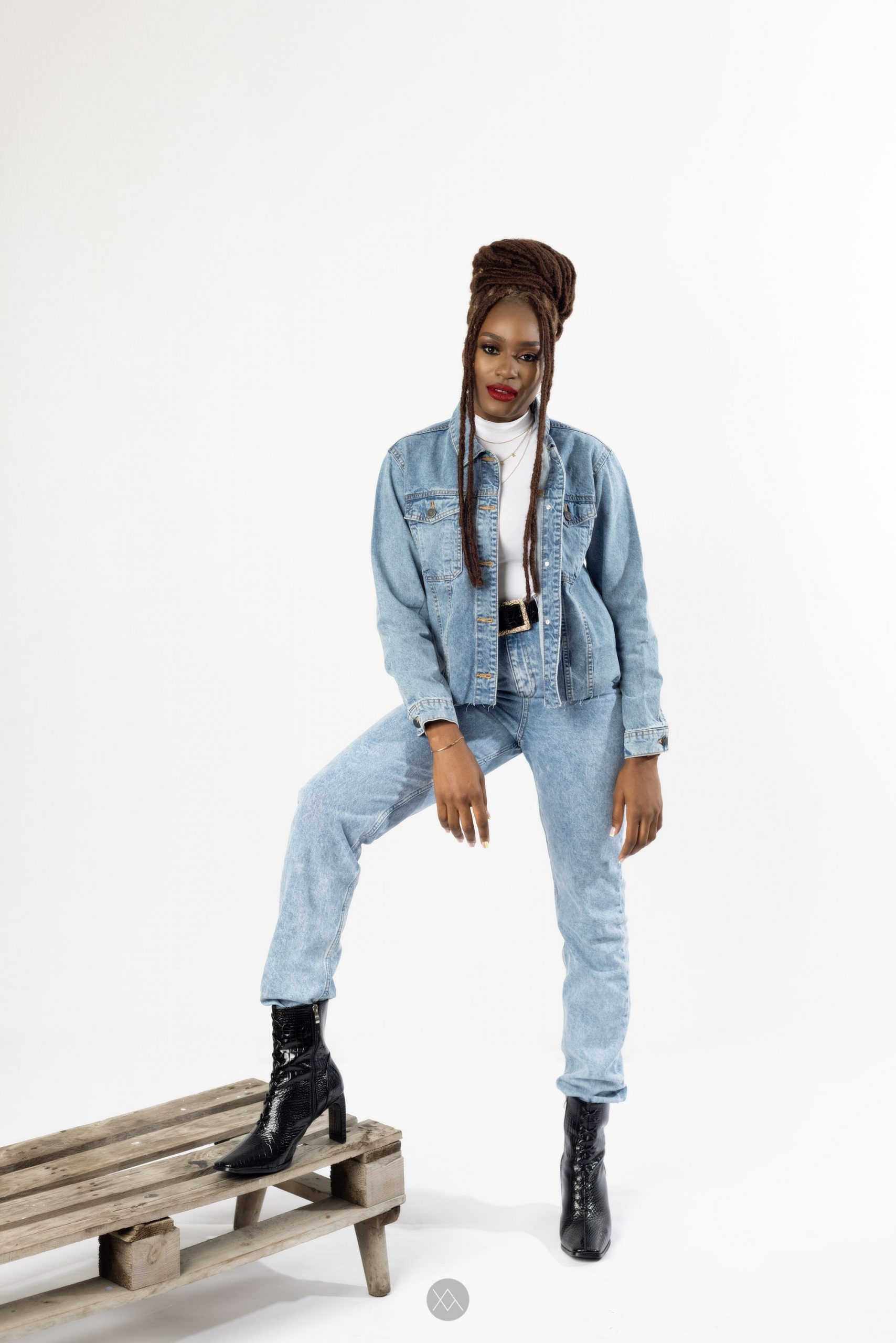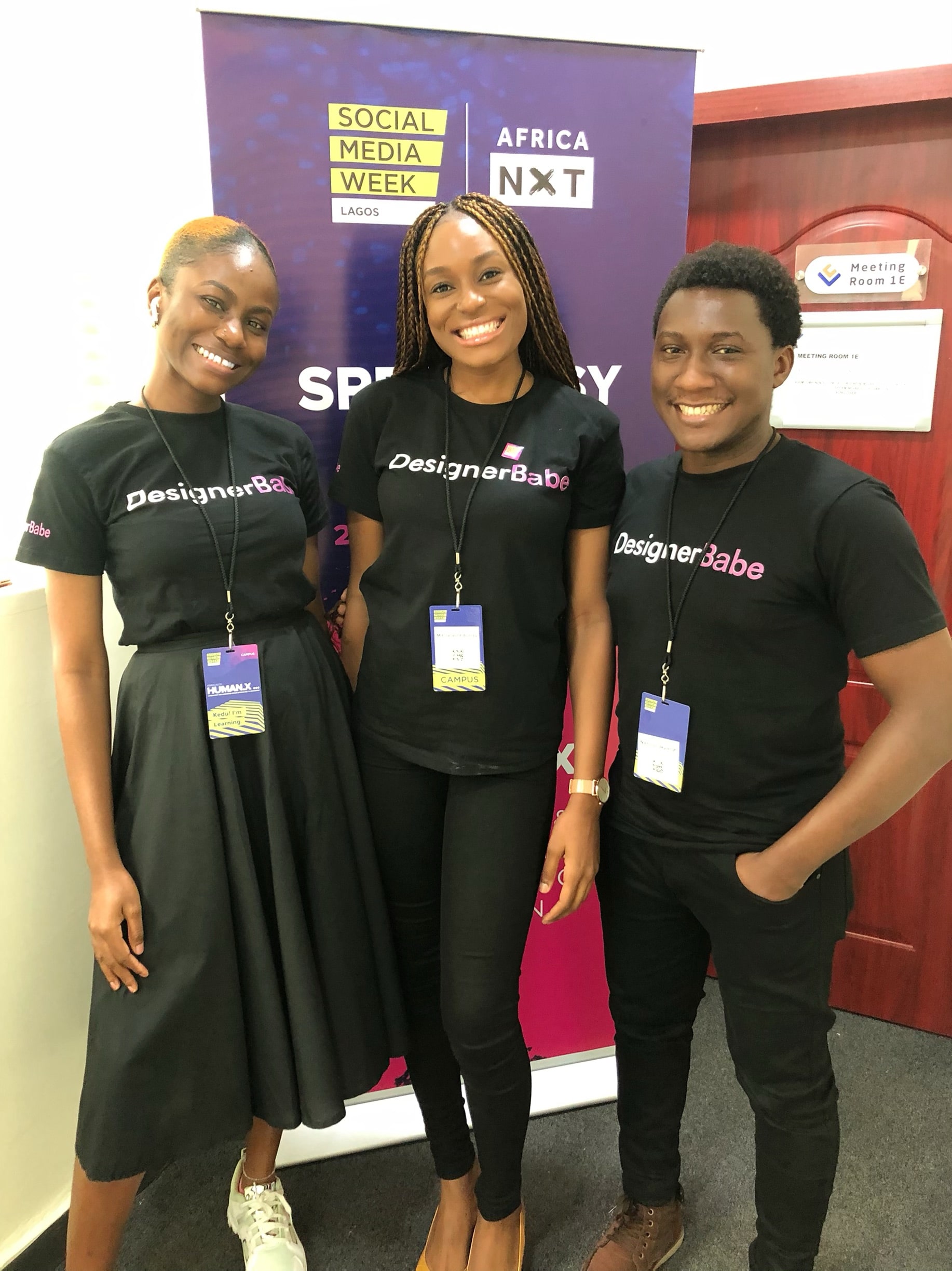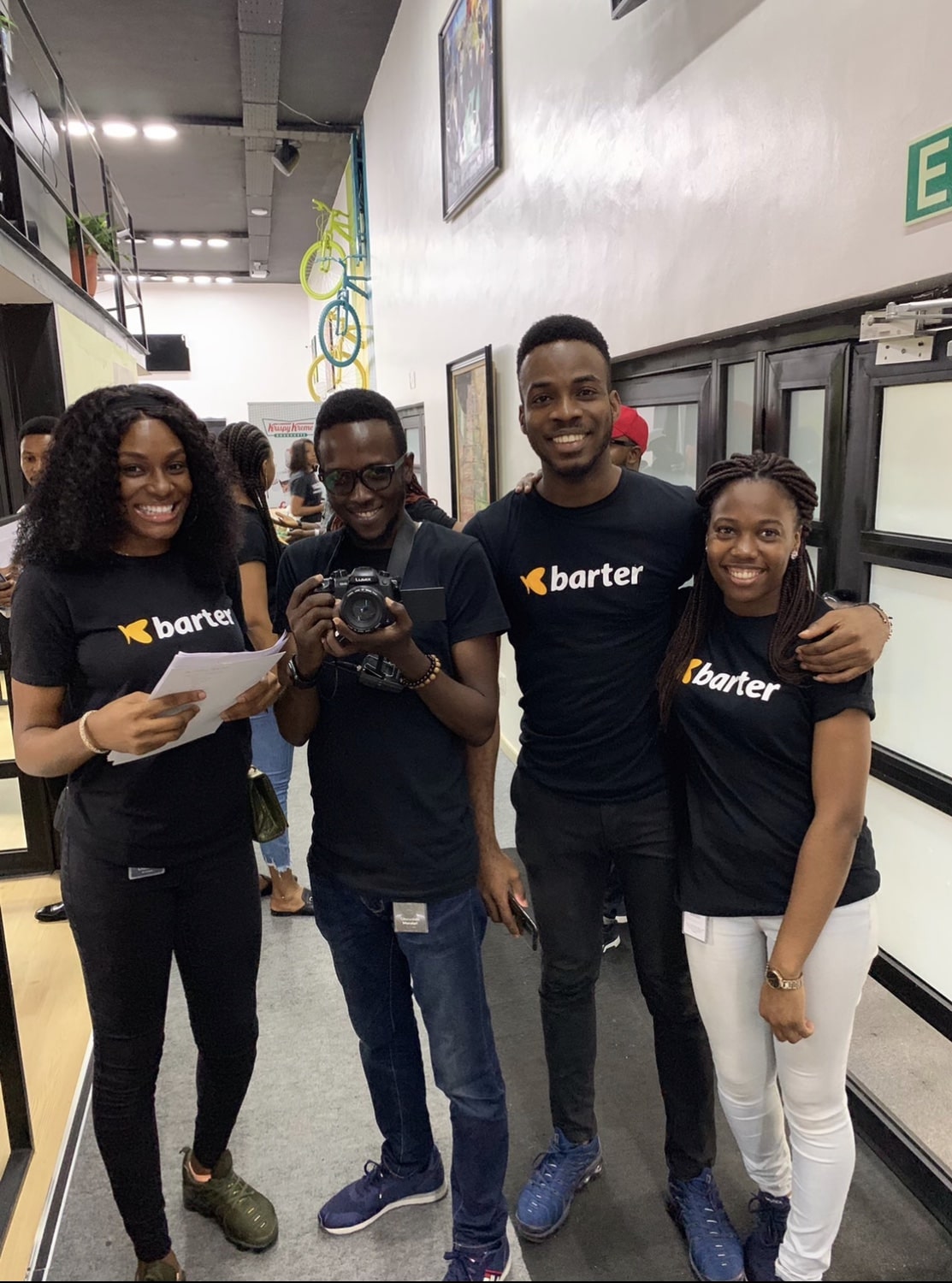Mitchelle Chibundu

I did not really set out to be a designer.
If I am being honest, I would say that it just came to me. The first time I did anything remotely close to design was during my days as a makeup artist. I wanted to design a logo for my business and the whole process was interesting to me because I had to like, research what I wanted and what I wanted to communicate. It was quite a difficult process but it was worth it. So, doing that logo was my first hands-on experience with anything relating to design. I was also living with my sister at the time and she is an Event Coordinator. I would help her do some flyers with Photoshop.
Moving to Lagos and trying to navigate life, I realised that although I always wanted to work in a corporate environment, my training/background as a marine biologist limited my options in Nigeria. I knew I needed something to do with my life.
A friend of mine emphasized I doubled down on the design skills I had since it was globally accepted and convinced me to pivot to tech. I wasn’t sure how to get started, so I started looking for internship opportunities and that’s how I discovered Flutterwave and applied to intern.

A Place at Flutterwave
Put bluntly, I flunked my interview. They gave me a task and I spent hours without any result to show. It was so bad that they asked me to take a break and go downstairs for lunch and when I got back, they asked me to leave!
Fortunately, my friend knew GB and managed to get me another interview. This time was different. I met a sprint planning session and it was the first time I would hear about UI, UX, User Journey… and I was fascinated! Seeing them discuss everything, and the presentation on the board was all the push I needed. I was determined to learn design no matter what it took. I got the internship.
This is how I got into design.
Growing pains
Flutterwave was my first structured work environment – which was great because I had to learn how to communicate and to be part of a team. As an intern, I was surrounded by really smart people, so I knew I needed to learn and improve quickly. Fortunately, I had the space to study and immediately practice my new skills on real problems with real impact. My manager was on hand to offer feedback and became more like my mentor.
The environment also came with significant pressure. Even though I was learning and delivering on tasks, I did not see my own growth. Internally, I needed to prove myself to my colleagues every step of the way. It was a challenge getting my ideas through, I had to justify my decisions or direction. It started to feel like I didn’t belong because I joined without any prior experience. Trying to navigate all of that was difficult for me.
I went on a work trip to Germany to meet with a company that worked with Flutterwave and I was so inspired because the CEO was my age mate & their head of design was 18. It was a small team but they were all very knowledgeable. That trip reinforced my belief that I could make a career out of design.
Coming back to Nigeria left me really frustrated. I was back in an environment where I had little or no credibility. For a lot of people, the only frame they use to judge me is “the intern”. Someone who knows little or nothing. I had to change that!
@DesignerBabe
After the trip, I started to share my journey and design tips on my personal Instagram. It was an outlet to share what I was learning, hoping it would help another designer starting out like myself. My network at the time did not follow “designer Mitchelle” so unsurprisingly, they didn’t engage.
So, I created a new Instagram account @_designerbabe for the same type of posts. I would usually share it with friends who were supportive. Eventually, others started discovering the page and engaged with the content. It grew organically.
View this post on Instagram
Getting validation
While all of this was going on the outside. There was a change at work. I think it had to do with the structure of the company or so, and I was given a project to work on. This was like a full project, with full autonomy on decisions and everything. Sometimes I feel like I was given the project out of spite. Perhaps in hopes that I fail and become collateral damage. Well, I didn’t.
Because I had full autonomy on the project, I was able to experiment and dictate the overall design strategy. My success with the project finally earned me some respect internally.
It felt like everything was now slowly coming together. On the outside, I was starting to establish myself as an expert in the field. Internally, the success of the project made people sit up and pay attention.
Design Thinking
I currently work with the Support team @ Wise. It’s a large organization with a big product. I spend a lot of time thinking about how design can interplay with my team’s goals and solve the problems identified. In this large organization, the focus is not primarily on conversion, so I have time to experiment and really think about what we are trying to solve.
I do a lot of documentation. I write everything down usually because I like to write and I communicate better with writing, this makes writing proposals easy. Once the proposal is written, I send it to all the people that are involved for feedback and suggestions.
Recently, I started running user tests on a design solution I inherited. That usually involves creating test scenarios, and scripts and then administering the test.
Design itself is thinking. A huge part of my design process involves thinking, writing and feedback.
Handling Criticism
I will say one has to be confident in what one has done; it’s the basis of receiving feedback. So, it helps to be confident but open to learning, open to being wrong.
Now, if someone is giving critical feedback and I am confident in what I’ve done, what I do is to acknowledge what is said, then add that it’s something I would think about in future.
Inspiration + Favourite App
My source of inspiration usually depends on the type of project I’m working on. When I understand the problem I’m tasked with solving, I invest time in researching similar products or people solving similar problems. I find inspiration from studying all the information I gather.
My favourite app is Duolingo. It has helped me stay consistent in learning new languages.
On Mentorship and Community
Community is very important. but one has to be strategic; you have to know what you want exactly and then find people who can help you develop yourself. Even if your community is just two people with whom you can share experiences and challenges, it is important.
I haven’t really had many active mentors, but I believe mentorship is important and that one can learn a lot from passive mentors; see their works, learn from their designs and publications without being in constant contact with them. That way, one is able to respect their time and still benefit from their knowledge.
Recommended skills for designers
I would say: Learn how to think, how to be empathetic, and how to communicate.
Empathy is a key one. I know some people will think this is overused but I believe designers have to be empathic to understand people. It is also important to know how to communicate with stakeholders effectively. Being empathetic will help you understand situations better and help them navigate.
Beyond these, there are technical skills like learning Figma and design foundations. However, I believe, being empathic, having good communication skills and being able to think will go a long way in improving a Designer’s work.
Advice for 2017 Mitch.
If I could go back in time, I would have told myself to be more confident; I had so many brilliant ideas that I couldn’t voice out because I felt so out of place. In fact, many will tell you that I was a shy person at Flutterwave, and I wonder how because I am not a shy person. So be confident, and don’t try so hard to prove my credibility to others, especially as I was doing quite well.
I would tell her that design is about people, not technology. Technology is just a tool. Design should I really wish I learnt something on behavioural science or psychology because I realise a huge part of Design is more about understanding users than the actual technology. So, I wish I knew more about people and what goes on in their heads.
And finally, it can get exhausting; I think that has to be at the back of every designer’s mind. It can get really exhausting, but if you weather through, you can make it. I believe it is just like watering something, water your design career and it will grow.
Continue Reading
Dinma Aniugbo
Dinma is an Economist turned Product Designer with a keen interest in helping digital teams solve problems and achieve their goals.
Read Origin Story ➝
